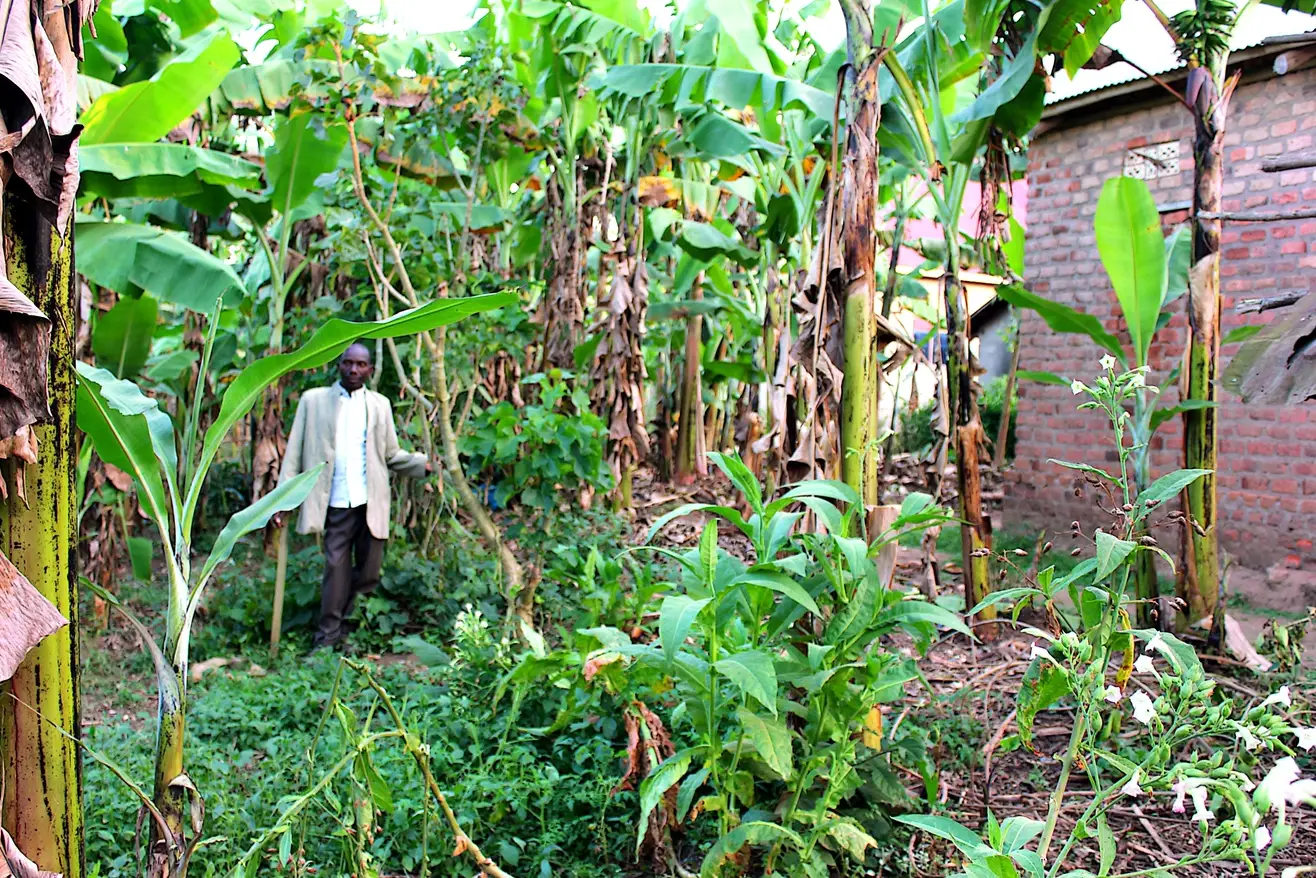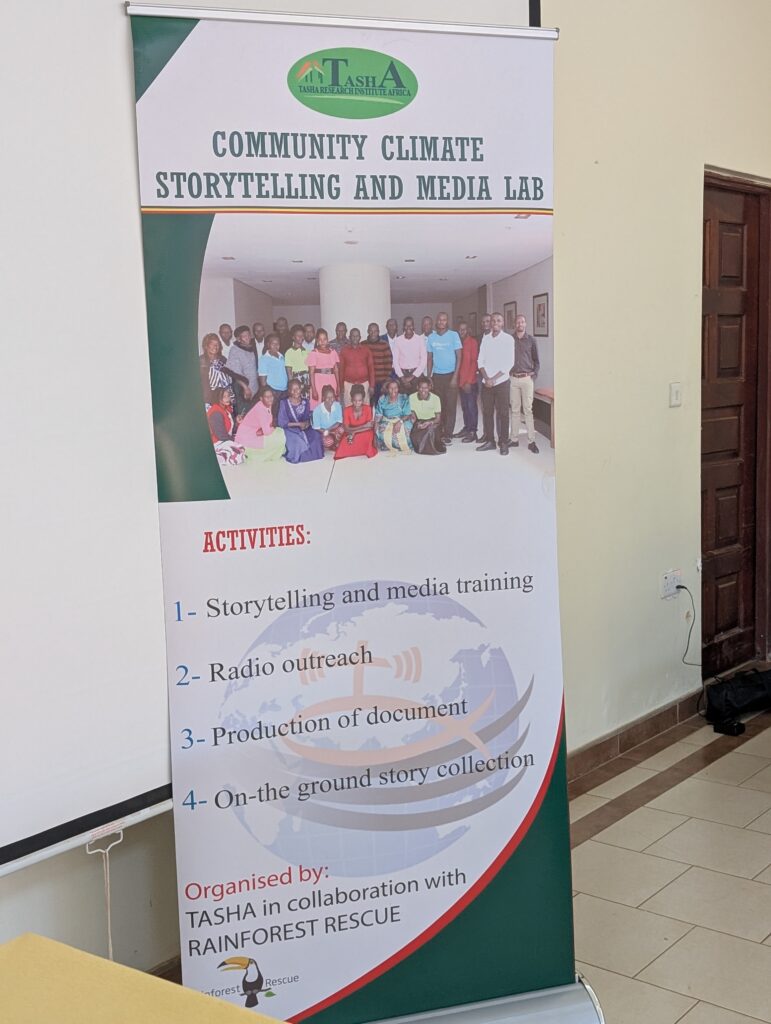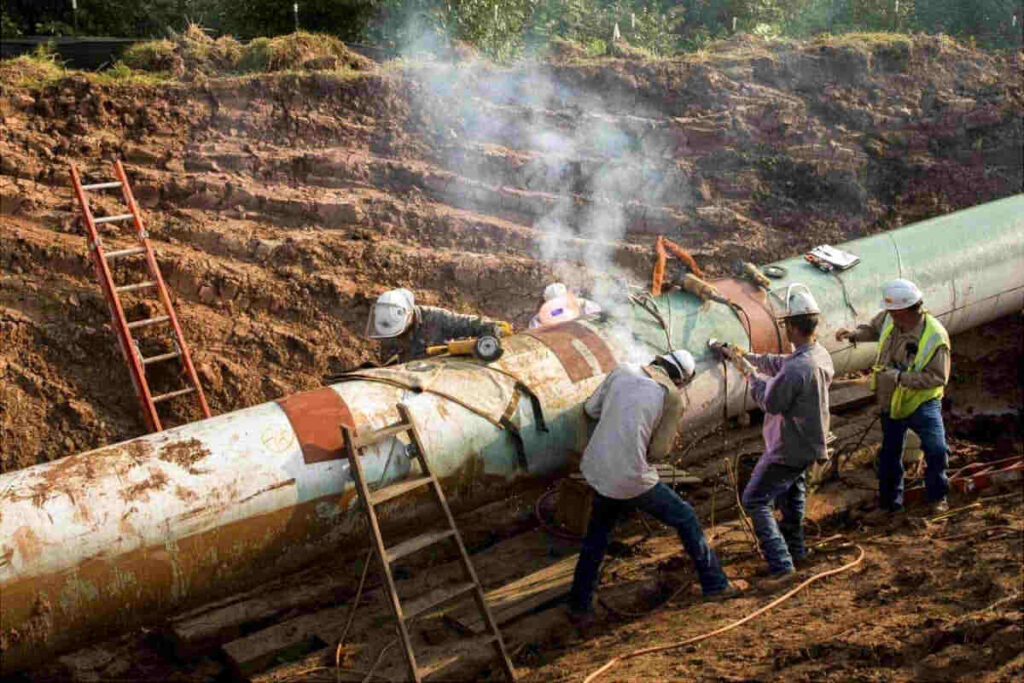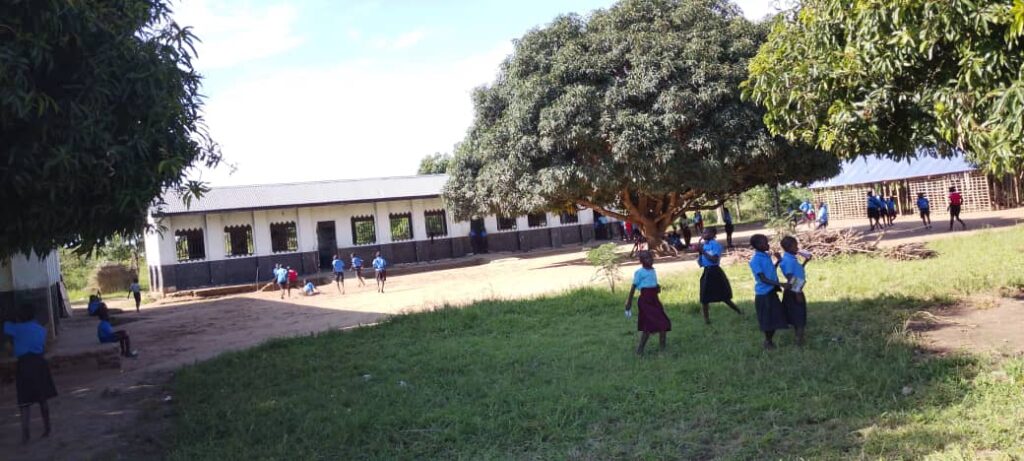When the East African Crude Oil Pipeline (EACOP) was announced, it arrived draped in the language of transformation. Policymakers and company officials spoke of prosperity, employment, and a future gleaming with oil-fueled development. But for many Ugandans living along its path, those promises have not only fallen flat—they have fractured lives.
Lubowa Fred, (pictured below, in his farm) a resident of Busisi village in Kyotera District, knows this too well. His fertile land, once abundant with bananas, maize, coffee, and beans, became off-limits when it was designated part of the EACOP corridor. Without access to his fields, Fred’s income evaporated. His children were forced to drop out of school. And the future he’d worked to build for his family collapsed under the weight of false assurances.
“They said I will be financially okay,” Fred recalls. “But I can tell you, it is instead misery now—more than before I was affected by the pipeline—because what they promised is not what was done.”

From Abundance to Fear
In August 2024, the Tasha Research Institute documented Fred’s situation. Read more about it here. Beyond the loss of farmland, they found that Fred’s home stands just meters from the designated pipeline construction route—so close that any heavy excavation or machinery activity could cause structural damage to his house.
Fred reported the risk to TotalEnergies. Their response was clear, and deeply unsettling: he would only be compensated if the house is actually damaged.
“They told me I’ll only get compensated if my house gets damaged,” Fred said, standing a few short paces from where the pipeline work will take place. “So I just have to wait—for it to be destroyed.”
Each day, Fred lives under this threat, not knowing when—or if—relief will come. The home that once anchored his family is now a fragile structure poised on the edge of uncertainty.
Accountability Deferred
Fred’s story, though deeply personal, exposes broader cracks in the EACOP compensation system. It raises questions that no one in authority seems willing to answer.
Why is preventive compensation not guaranteed for households clearly at risk?
Why must families like Fred’s endure anxiety and wait for actual physical damage before their concerns are taken seriously?
And why, in the face of such documented suffering, does the project continue unchecked, without structural reform or accountability?
Fred has no answers. What he has instead is a growing fear that the system is designed not to protect people like him, but to delay responsibility until it’s too late.
In the silence that follows his questions, nothing changes. The machines edge closer. The walls remain unreinforced. And Fred continues to wait—less for compensation, and more for someone, anyone, to care.
A Pipeline of Displacement
Fred’s experience is not isolated. Across Kyotera and beyond, similar stories echo through villages silenced by bureaucracy and bruised by neglect. The names change—Frank, Suuna, Senyondo—but the losses are the same: land, stability, voice.
The East African Crude Oil Pipeline was marketed as a national triumph. But on the ground, it moves like a shadow—swallowing homes, farms, and futures in the name of progress.
If the pipeline is to be remembered as anything more than a cautionary tale, it must begin by listening to those it has harmed the most.
Until then, Lubowa Fred’s house still stands—but for how long, no one can say. Not even Fred.



